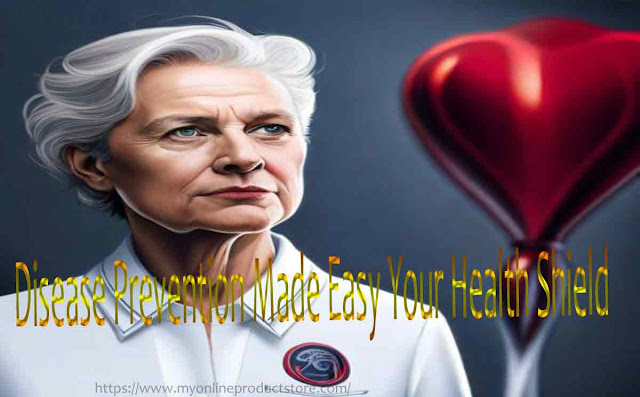The Significance of Disease Prevention
Disease prevention is the foundation of a long and vibrant life. The following are some strong arguments for why it's essential:1. Quality of Life
Preventing diseases means avoiding the pain, discomfort, and limitations that often come with illness, leading to an improved quality of life.2. Longevity
By reducing the risk of life-threatening diseases, you increase your chances of living a longer and more fulfilling life.3. Cost-Efficiency
Prevention is often more cost-effective than treating diseases. Regular check-ups and healthy habits can save you money in the long run.
4. Reduced Healthcare Burden
Preventing diseases lightens the burden on healthcare systems, ensuring that resources are available for those who need them most.
5. Empowerment
Taking control of your health through prevention empowers you to make informed choices about your well-being.
Practical Strategies for Disease Prevention
Preventing disease involves a combination of lifestyle choices, regular screenings, and awareness. Here are practical strategies to help you become your own health shield:
1. Eat a Balanced Diet
Consume a variety of fruits, vegetables, whole grains, lean proteins, and healthy fats to provide your body with essential nutrients.
2. Exercise Regularly
With muscle-strengthening activities, aim for at least 150 minutes per week of moderate-intensity aerobic activity or 75 minutes per week of vigorous-intensity activity.3. Maintain a Healthy Weight
Achieving and maintaining a healthy weight reduces the risk of obesity-related diseases like diabetes and heart disease.4. Get Regular Check-Ups
Schedule annual check-ups with your healthcare provider to monitor your health, receive recommended screenings, and address any concerns.5. Manage Stress
Stress can contribute to various health issues. Use stress-reduction strategies like yoga, mindfulness, or meditation.6. Limit Alcohol and Avoid Smoking
Limit alcohol consumption, and if you smoke, seek support to quit. Both alcohol and smoking are linked to numerous health problems.7. Practice Safe Sex
Protect yourself and your partners by practicing safe sex and getting regular sexual health check-ups.
8. Get Vaccinated
Stay up-to-date with vaccinations to prevent infectious diseases like the flu, pneumonia, and certain cancers.9. Prioritize Mental Health
A key element of total well-being is mental health. If you're struggling with depression, anxiety, or other mental health difficulties, get treatment.












Post a Comment
Post a Comment